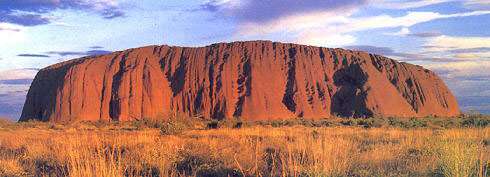|
|
Vonda Stanley's collection of early Australian poems
THE TASMANIAN ABORIGINE'S LAMENT AND REMONSTRANCE WHEN IN SIGHT OF HIS NATIVE LAND FROM FLINDERS ISLAND
Fair island of my birth, thy distant rocks
Call forth the tenderest feelings of my heart;
Although the sight of thee my yearning mocks,
For cruel waves thee from my children part.
Ah! White man, why---Oh! Why thy childhood's home
Did'st thou abandon, to drive us from ours?
Why, unprovoked, with terrors did'st thou come,
To cloud with woe a people's once glad hours?
Thou can'st not tell with what a fond desire
We cling to thoughts of what was once so dear;
When sadly gaze the children, wife and sire,
On whose loved cliffs, so distant---yet so near.
Not ours to cultivate the teeming ground,
And with luxurious dwellings stud the soil;
Not ours to pore upon the page profound,
And reap the rich rewards of mental toil:
Far other are our labours and our joys;
Nature, to us and ours, is all in all;
No implement of art our race employs,
For nature hears, and answers every call.
She taught us to transfix the kangaroo,
And the swift emu, with the quivering spear;
She showed us where the hidden ground-bread grew,
And many a root, to swell our frugal cheer.
'Twas she instructed us the honeyed flower
To steep in water, and to roast the seed;
And she imbued us with the magic power
To call forth hidden fire, in time of need..
Thou white man,
With thy ever growing store
Of learning, mak'st a home in every land;
For thee all countries forth their treasures pour,
And nature waits, the servant of thine hand.
Not so with us; linked with our native earth
Are all pleasures, and is all our care:
The state our fathers lived in at our birth,
Is but the lot that we are born to bear.
Let us return to our loved land again!
Ah! White man, wherefore dost thou keep us here?
Thou dost not know the exil'd bosom's pain,
Nor wear'st away the life with many a tear.
Our race is fast decaying;---far and wide
Extend thy riches, and increase thine heirs;
Oh! Let us die where our forefathers died,
That we may mix our wretched dust with theirs.
'Auster' 6 October 1847.
Most of the surviving Tasmanian Aborigines had been concentrated on Flinders Island since early 1842, at first under the superintendence of George Augustus Robinson.
(This is a rebuttal of Edwards Kemp's satirical poem, "A Voice From Tasmania"
